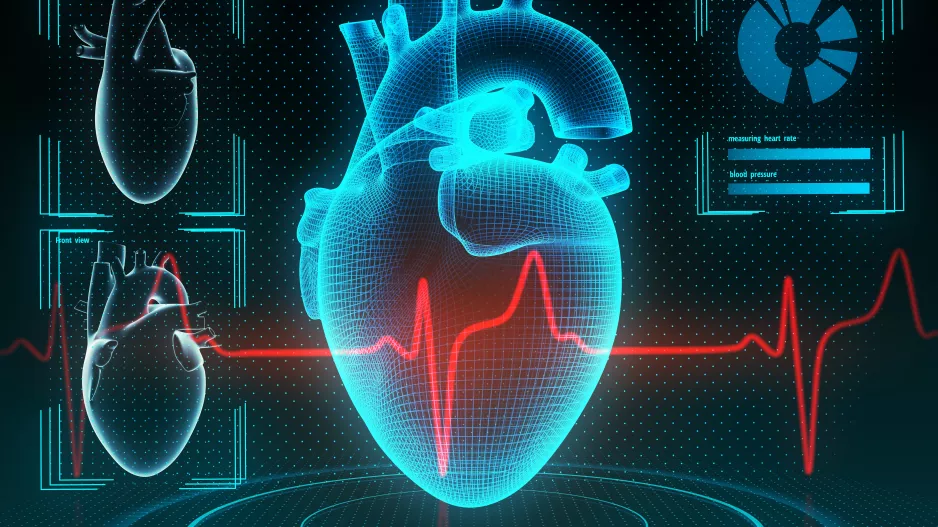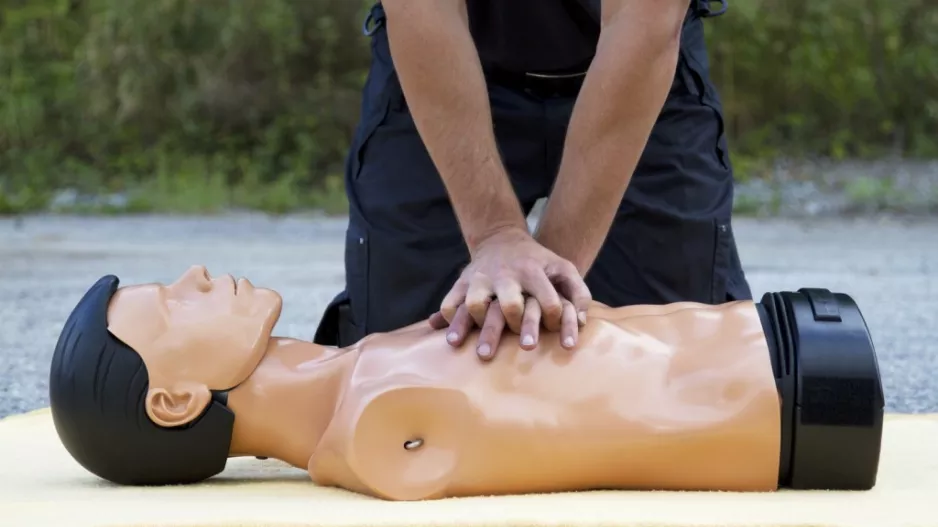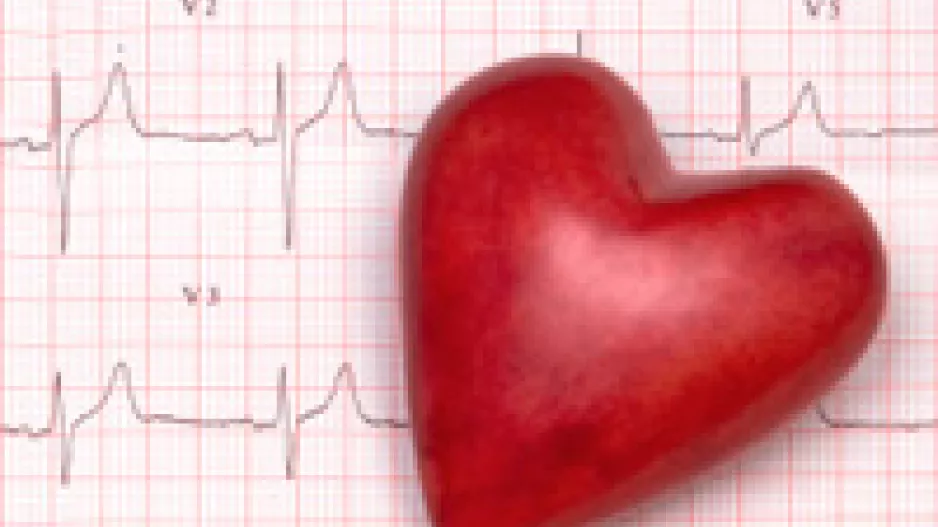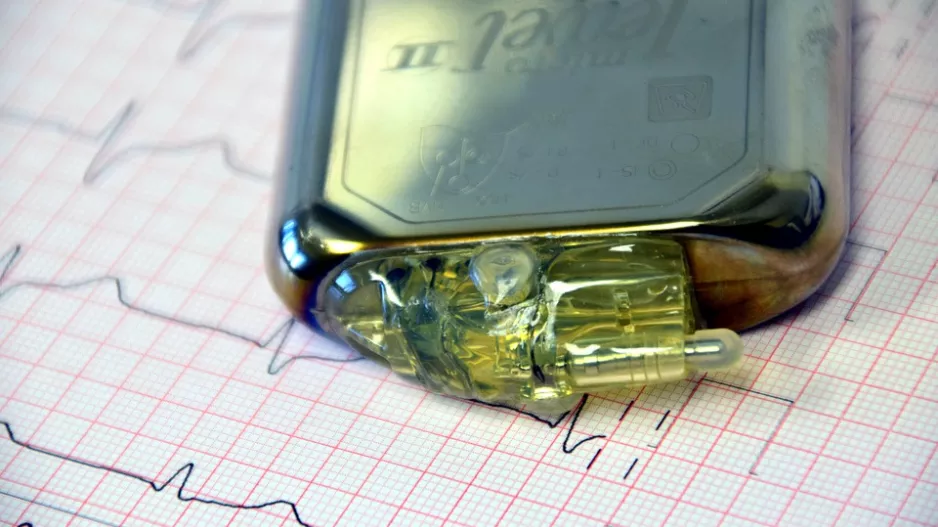More Articles
Black Medicare beneficiaries with implanted cardiac devices (ICDs) face a lower risk of atrial fibrillation (AF) than their white counterparts, despite a higher overall burden of vascular risk factors and a greater risk of stroke,…
His-optimized cardiac resynchronization therapy successfully narrowed QRS duration, improved left ventricular (LV) ejection fraction and heightened functionality in 27 patients with advanced heart failure (HF), according to a study…
The lifetime cumulative risk of sudden cardiac death (SCD) is much higher in black patients than in whites, according to an analysis of the Atherosclerosis Risk in Communities (ARIC) Study published in…
Researchers from the Thayer School of Engineering at Dartmouth College have developed a dime-sized innovation they claim converts the heart’s energy into electricity to power implantable devices like pacemakers and defibrillators,…
Atrial fibrillation (AF) is rare during dobutamine stress echocardiography (DSE), a routine exam for assessing coronary ischemia, but elderly patients and those with a history of paroxysmal AF are at an increased risk for arrhythmia…
A Journal of the American Heart Association study focused on the programming safety of cardiac implantable electronic devices (CIEDs) suggests the…
Stryker announced on Feb. 1 it is voluntarily recalling certain Lifepak 15 monitor/defibrillators over an issue which may cause the devices to lock up and not deliver potentially life…
Patients who experienced tachycardia within one year of being diagnosed with cancer carried higher mortality rates up to a decade later—even after adjusting for clinical characteristics and medication use—according to research presented Jan. 25…
Breast cancer patients under 60 years old are nearly twice as likely as their healthy counterparts to develop both short- and long-term atrial fibrillation (AF), researchers reported Jan. 29 in Heart Rhythm.
…
Non-vitamin K oral anticoagulants (NOACs) including dabigatran, rivaroxaban, apixaban and edoxaban have replaced warfarin as the preferred treatment for reducing stroke risk in patients with atrial fibrillation, according to updated…
Royal Philips and the American Heart Association are collaborating for a new program devoted to increasing survival rates in patients who experience sudden cardiac arrest (SCA), the organizations announced Jan. 23.
The…
Leadless pacemakers are a viable alternative to conventional pacemakers in patients with a history of device infection and lead extraction, researchers reported in the January edition of…
Abbott on Jan. 21 announced the FDA approval of one of its atrial fibrillation (AFib) ablation catheters, the TactiCath Contact Force Ablation Catheter.
The sensor-enabled catheter “delivers more precise images of the heart overlaid with…
The majority of patients who present to the emergency department (ED) after fainting likely don’t need to be monitored for more than two hours to rule out any dangerous underlying arrhythmias, Canadian researchers have found.
…A prospective, single-center study from Denmark suggests nearly half of patients develop a new conduction abnormality after transcatheter aortic valve replacement (TAVR), impacting their short-term and long-term prognosis.
The…
Young victims of sudden cardiac arrest (SCA) and death are more likely to have a history of cardiovascular disease and some relationship with drugs or psychiatric illness, according to research published Jan. 19 in the…
Women implanted with cardiac implantable electronic devices (CIEDs) like pacemakers, implantable cardioverter defibrillators (ICDs) and cardiac resynchronization therapy (CRT) technologies are more likely to experience acute CIED…
Medtronic announced on Jan. 15 the launch of a mobile app that connects four of the company’s pacemakers to patients’ smartphones and tablets…
Men who are dissatisfied with their marriages are around 86 percent more likely to experience sudden cardiac death (SCD) than those who are very satisfied, according to research published in the Jan. 1 edition of the…
A high-density electroanatomic mapping study of 75 patients with atrial fibrillation (AF) has concluded that even a regular alcohol intake—up to 14 standard drinks per week—is associated with impairments in electrical signaling and more…
AI applied to an electrocardiogram (EKG) test reliably detected asymptomatic left ventricular dysfunction (ALVD)—a precursor to heart failure—and predicted which patients were most at risk of developing the condition in the future, according to a…




















